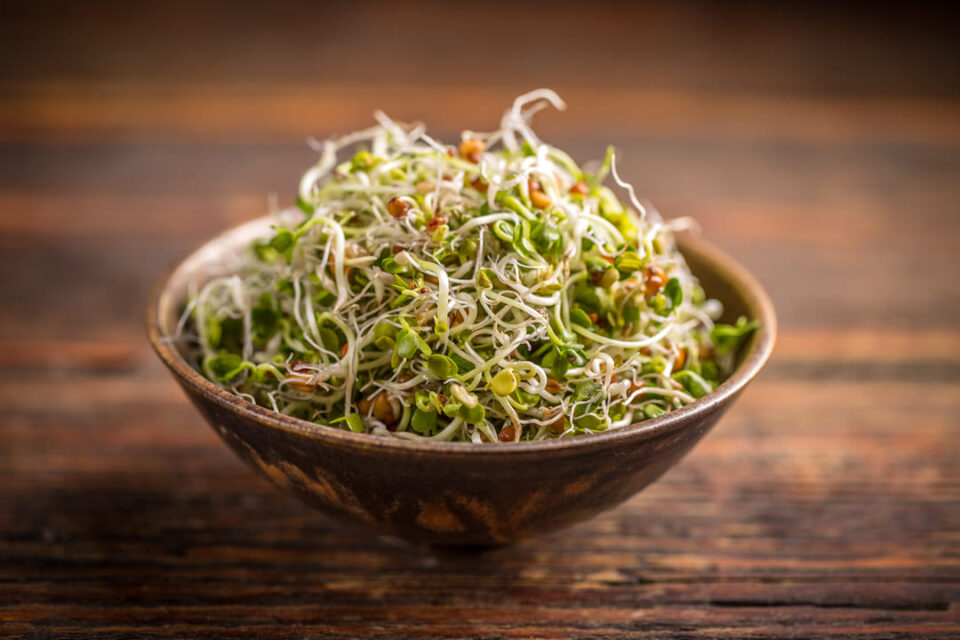Sprouts and germinated foods have long been hailed as nutritional powerhouses in health and wellness. Packed with enzymes, vitamins, and minerals, these tiny shoots are often touted as the key to unlocking optimal health and vitality. But what does Ayurveda, the ancient Indian system of medicine, have to say about these sprouted wonders?
As with most things in Ayurveda, the answer is not simple. While Ayurveda recognizes the potential benefits of sprouts and germinated foods, it also cautions against their excessive consumption, particularly for certain individuals and during specific seasons.
First, let’s take a closer look at the Ayurvedic perspective on sprouts. According to Ayurveda, sprouts are considered to be rajasic in nature, meaning that they are energizing and stimulating to the body and mind. This can be beneficial for those who are feeling sluggish or in need of a boost, but it can also be aggravating for individuals who are already in a state of high energy or stress.
Additionally, Ayurveda teaches that sprouts are difficult to digest due to their high fiber content and the presence of enzyme inhibitors that can interfere with the body’s natural digestive processes. This can lead to bloating, gas, and other digestive discomfort, particularly for those with weak or compromised digestion.
Research has also shown that sprouts and germinated foods can be a potential source of foodborne illness, particularly when consumed raw. A study published in the Journal of Food Protection found that sprouts were responsible for 40% of all foodborne illness outbreaks linked to produce between 1998 and 2010. The humid conditions required for sprouting can create an ideal environment for the growth of harmful bacteria such as Salmonella and E. coli.
So, does this mean that Ayurveda advises against consuming sprouts altogether? Not necessarily. Like most foods, sprouts can be enjoyed in moderation as part of a balanced diet. However, Ayurveda does offer some guidelines for those who wish to incorporate sprouts into their diet in a way that minimizes potential risks and maximizes potential benefits.
First and foremost, Ayurveda recommends that sprouts be consumed in small quantities and combination with other easily digestible foods. This can help to mitigate their rajasic qualities and ease their digestion. For example, adding a small handful of sprouts to a soup or stew can be a gentle way to incorporate them into the diet.
Ayurveda also advises that sprouts be avoided by individuals with certain health conditions or imbalances. For example, those with inflammatory conditions such as arthritis or asthma may find that the rajasic nature of sprouts aggravates their symptoms. Similarly, those with weak digestion or a tendency towards bloating and gas may find that sprouts are difficult to tolerate.
In terms of seasonality, Ayurveda recommends that sprouts be consumed primarily during the spring and summer months when the body’s natural digestive fire is stronger and better able to handle their high fiber content. During the colder months, when the digestive fire is naturally weaker, sprouts should be consumed in smaller quantities or avoided altogether.
So, while sprouts and germinated foods may not be the miracle cure-all that some health enthusiasts claim them to be, they can still be a valuable addition to a balanced Ayurvedic diet when consumed mindfully and in moderation. By taking into account one’s constitution, health status, and seasonal influences, it is possible to enjoy the potential benefits of sprouts while minimizing any potential risks or imbalances.
Ultimately, the key to unlocking the wisdom of Ayurveda is not blindly following rigid dietary rules or chasing after the latest superfood trends. Rather, it is in cultivating a deep understanding of one’s own unique needs and imbalances and making choices that support overall health and well-being. Whether that includes a daily dose of sprouts or not is up to each individual to determine, with the guidance of an experienced Ayurvedic practitioner and a healthy dose of self-awareness.

